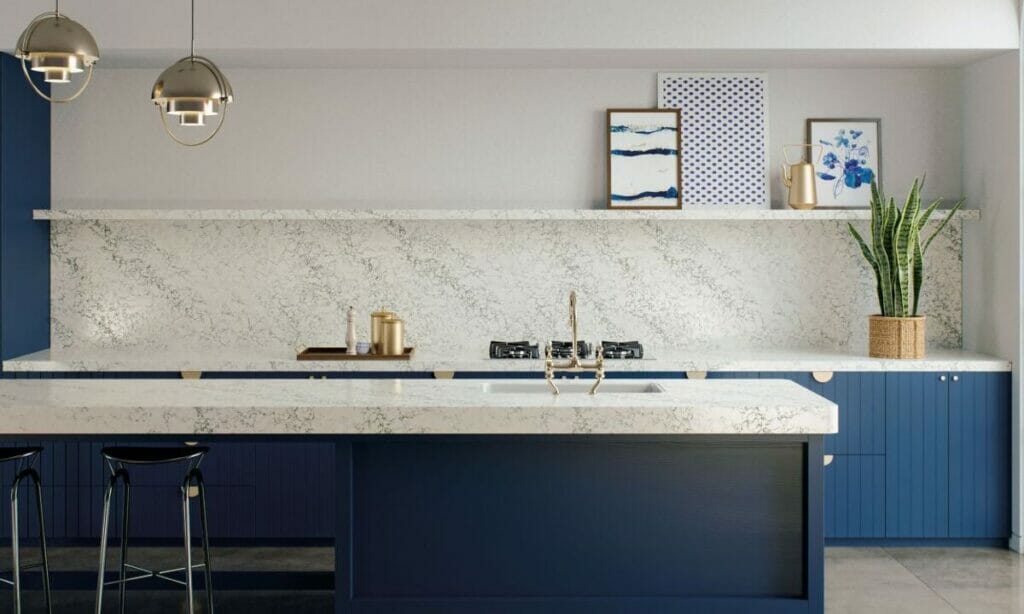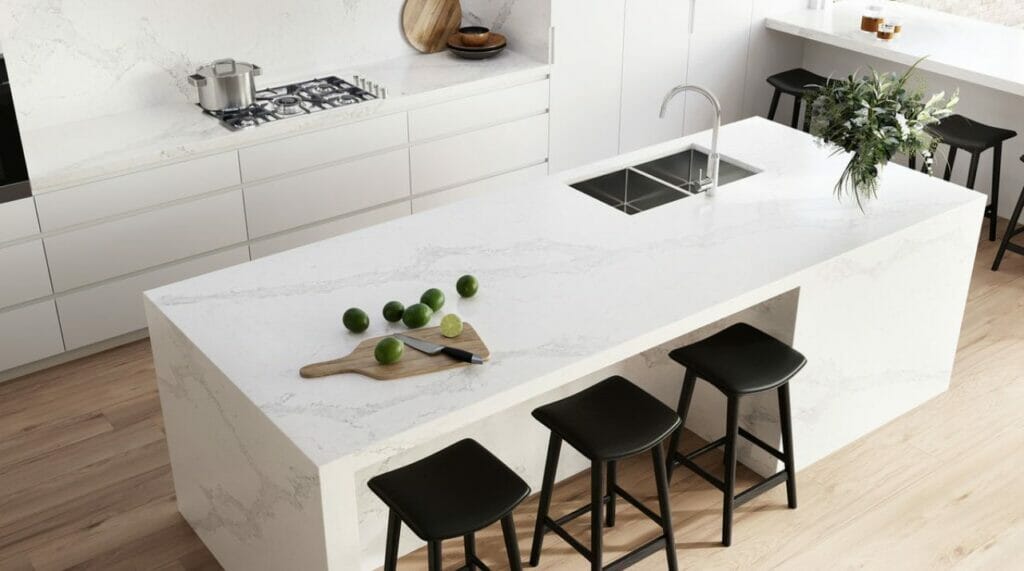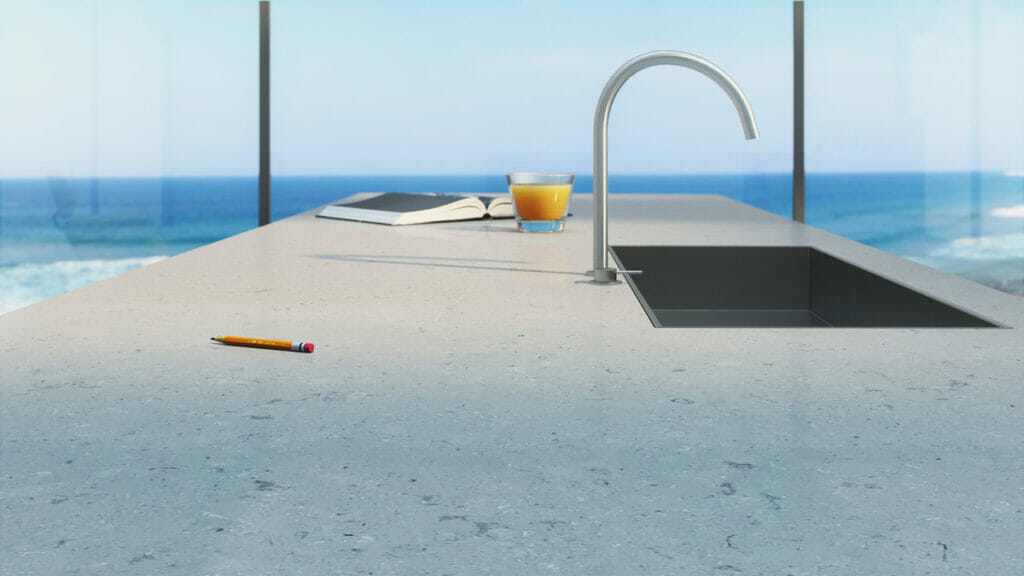What to do About Stains on Quartz Countertops
4 min read
Discovering stains on your elegant quartz countertop can be worrying. Fortunately, quartz countertops exhibit high stain resistance but they are not completely stain-proof. Food substances such as turmeric or food dyes may cause moderate to very faint staining on quartz countertops. Fortunately, it is possible to remove stains from quartz countertops.

Why quartz may stain though it’s stain-resistant
Quartz countertops are made from two primary materials: polymer resins and natural quartz. It’s the natural quartz that’s impervious to liquids, impermeable to gases, and non-reactive.
The polymer resins (about 5% to 10% in volume) bind the quartz particles. But under certain conditions, polymers may undergo slight chemical transformations. This may occur, for instance, if you leave a harsh chemical on the quartz countertop for an extended time.
Slow reactions may result in staining. This may sound alarming but manufacturers use stable polymers with high chemical resistance, making the countertops safe for food preparation. The quartz is unlikely to stain because it’s hard and non-porous.
Here are 7 methods for removing stains from quartz countertops.

Seven ways to remove stains from Quartz countertops
Can’t seem to remove those stubborn stains from your quartz countertop? Here are some of the best methods to try:
Most glass cleaners don’t leave any streaks or smears on the surface. They also dry quickly. Products such as Windex, are not likely to damage bonds between quartz and the resin. Some also dissolve grease, and lift dirt from the surface.
You can remove stains with supplies you already have in your kitchen. A mixture of white vinegar and water is a popular household cleaner to rid of tough stains like hard water spots from faucets, stains on surfaces, and others.
The acidic property of vinegar makes it ideal for breaking down all types of stains.
When preparing the mixture, use this easy formula: equal parts water and vinegar. Allow the solution to sit on the stained surface before wiping with a cloth. For stubborn stains, leave the solution to soak overnight.
This is among the best natural methods for cleaning your quartz countertop.
Sometimes an all-purpose cleaner can work on quartz stains with a little patience. Just spray your regular cleaner on the stain. Give it some time to work and buff it out. Repeat this process until the stain is removed.
Cleaning methods that are okay to use with some care
The most popular scouring powder is Bar Keeper’s Friend, manufactured in 1882. It’s used to clean cookware, sinks, backsplashes, non-stone countertops, stoves, and other surfaces.
It’s easy to use. Just sprinkle on a wet surface and rub gently with a damp cloth.
When working with quartz countertops, Bar Keeper’s Friend advises against leaving the product for a very long time or over-applying in a small area.
Soft Scrub Gel with Bleach is a great option for removing tough stains. Just be sure not to leave the product sitting on your countertop for a very long time as any acidic cleaning substance can cause discoloration when not used properly.
Get help from a professional for deep stains
How will you know when to get professional help? Some stains may be impossible to remove with regular cleaners. The appearance of blotches, haziness, or discoloured patches may also be a result of permanent chemical reactions.
In such cases, it’s always advisable to reach out to the retailer where you purchased the quartz countertop.

Bonus: Tips to Keep Stains off Quartz
First line of defense against stains is becoming vigilant. That means wiping spills from the quartz countertop immediately. Don’t expose the countertop to high temperatures from hot pans. Avoid harsh cleaners that may react with the resins used for binding.
Bottom Line
Quartz countertops are highly resistant to stains as they are engineered stones and much easier to care for than natural stone countertops such as marble. Still, it’s good to know that when accidents happen, you can fix them using readily-available products.
{{ subtitle }}
{{ i.desc }}
{{ subtitle }}
{{ subtitle }}